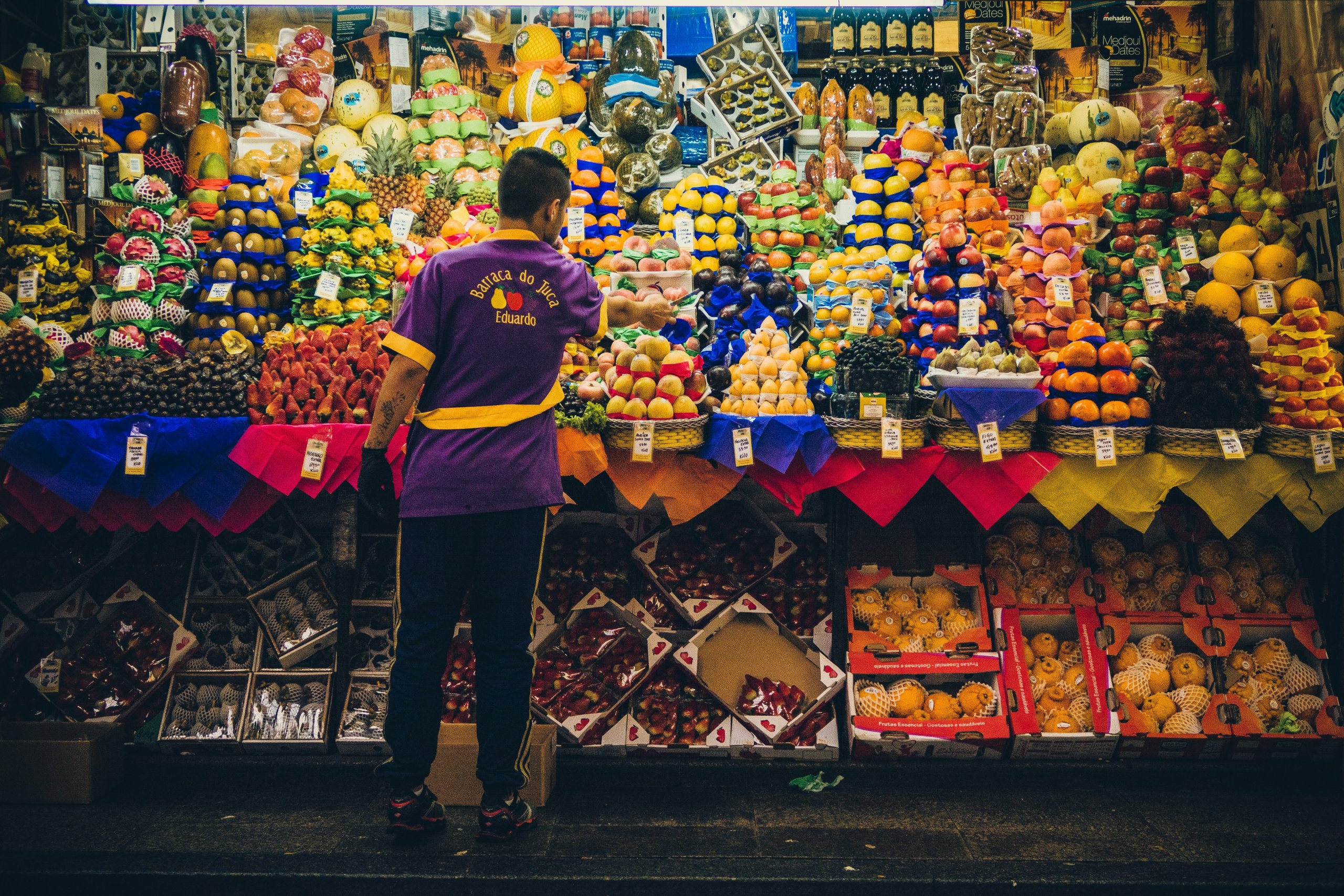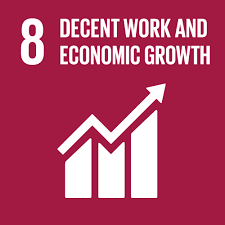The action and its aims
This case study focuses on two of SMAB’s programmes, Sacolão da Família (‘Family Basket’) and Nossa Feira (‘Our Fair’), both of which fall under the Department of Supply Units. The programmes have the same aims: to make vegetables and fruit more affordable, enabling residents to consume more fresh, healthy food and less industrialised, nutrient-poor food; to support higher incomes for local small, family farmers by cutting out middlemen in the supply chain; and to function as a price regulator, since regular grocery stores nearby keep their prices low in order to remain competitive.
Sacolão da Família consists of 16 special grocery shops located on city-owned land throughout the city, where a wide range of fresh vegetables and fruit are sold for the fixed price of BRL2.29 per kilo. This represents a saving of 40-45% compared with the produce prices of regular retailers. Sacolão shops are operated by entrepreneurs who are issued with permits by SMAB, and who source their produce from wholesale markets or from family farms within the Curitiba metropolitan area.
Nossa Feira, on the other hand, is a mobile market structure that tours 10 different city locations throughout the week, selling fresh produce from farmers in the peri-urban metropolitan area directly to consumers, also for a fixed price per kilo.
Importantly, both Sacolão da Família and Nossa Feira outlets are open to everyone, regardless of income.
When it was introduced
The first of the two programmes to be introduced was Sacolão da Família in 1997.
In 2013, SMAB introduced the Nossa Feira markets to communities.
Why it was needed
The programmes were developed to address The 16 Sacolãos located strategic spots around the city where there was otherwise poor supply of fresh and nutritious food.
Who initiated it, who is involved
The premises are owned by the city but are operated under permit by business people. Permits are awarded through a transparent bidding system. Whenever a unit becomes available – either because the secretariat is adding a new location or because the current permit holder no longer wishes to continue – SMAB publishes a call to tender. Would-be permit holders then submit their business plans for scrutiny.
The permit holders agree to abide by SMAB’s conditions, including maximum pricing. The Sacolãos are subject to spot inspections by SMAB officials, who check compliance with the pricing systems and quality of produce.
By 2013 the Sacolão concept had been proven to be effective. However, there remained neighbourhoods of Curitiba with high concentrations of retired people and low-income families that were still lacking affordable sources of healthy, nutritious food. To address the problem, SMAB officials hit on a variation of the same fixed low price/ high quality model that would cover more ground – but without the need to invest new buildings. Nossa Feira markets take place at 10 city locations throughout the week, from 16h to 21h so that customers can buy food on their way home from work.
Impacts to date
Nossa Feira allows the majority of Curitibanos, including those on low incomes, to be self-sufficient without the need for subsidies. The quality of food consumed by the market customers improves, as the 40% saving against regular retail means they can afford more, and better quality, produce. Moreover, the markets improve the social environment of neighbourhoods, serving as a space for meeting and socialising.
The temporary nature of the market structure means the programme can be rapidly expanded to additional locations if the population’s needs change.
It is not just consumers in the city who benefit. Nossa Feira also strengthens family farms and encourages professionalism, providing a platform for individuals and groups from different regions of the state to work together to access the lucrative urban market. The volume of sales has been high from the outset, with cooperatives reporting an immediate increase in sales of around 450%.
Finally, Nossa Feira (and Sacolão de Familia) proved to have resilient supply chains during the May 2018 truckers’ strike that brought conventional food distribution systems across Brazil to a standstill. Supermarkets began running out of supplies and what little produce was available was subject to significant price increases. For Nossa Feira and the Sacolãos, on the other hand, much of the produce (all in the case of Nossa Feira) comes from local farmers so the distances from producer to retailer were relatively small. The transporters used smaller trucks, meaning they could by-pass the blockades on the highways and deliver produce into the city via the smaller roads.
Nonetheless, Nossa Feira has not been without difficulties. The logistical costs and the labour required to set up the markets are relatively high, considering each market only operates for five hours. This means there is a need for a minimum volume of sales for the cooperative to cover its costs. However, since markets take place in each location only at certain times, Nossa Feira has struggled to attract a loyal customer base. Many people prefer to buy from a fixed retail point that is open during regular hours throughout the whole week – and the prices are often not that different, since Nossa Feira and Sacolão da Família have a regulating effect.
The feasibility of the programme is vulnerable to unexpected events affecting agricultural production (e.g. weather, political unrest etc), as well as economic changes that affect the income and spending ability of the public it serves. Indeed, the commercial viability became critical with Brazil’s recent economic crisis, especially after 2016. The decrease in consumption in neighbourhoods where people have the lowest purchasing power led to a 50% reduction in sales. As a result, several market points were no longer profitable.
These difficulties were compounded by the fact that the managers of the cooperatives are, first and foremost, farmers with no retail or managerial experience. This has had implications for operating costs, fiscal and labour costs, product quality, and loss management.
As a result, since 2016 the number of Nossa Feira locations has been reduced from 20 to 10. The cooperatives adopted measures to reduce operating costs and improve quality of produce and customer service. The efficiency drive appears to be yielding results: since the beginning of 2019 several market points with low sales have improved their performance and increased their competitiveness in relation to local commerce.
The Sacolãos da Familia and Nossa Feira enable Curitibanos to save between 40% and 45% against the price of fruits and vegetables in regular grocery stores that have no price restrictions in place. In 2018, the Sacolãos alone sold an average volume of 1,103 tons of produce per month between them and generated 95 jobs.
Data from the Ministry of Health’s Vigitel platform for monitoring risk-factors of non-communicable disease shows there has been a steady increase in the percentage of Curitiba’s population that consumes at least five portions of fruit and vegetables a day over the last decade, from 34.8% in 2006 to 45.5% in 2017.
At present SMAB has no plans to expand either Sacolão da Família or Nossa Feira. Rather, current efforts to ensure universal access to affordable nutritious food are focused on expanding the city’s network of Popular Restaurants in response to citizen demand, from five to seven. The Popular Restaurants serve nutritious meals to everyone regardless of means; everyone pays the same low price of BRL2.80 per meal, thanks to subsidies by SMAB out of the city budget. They are operated by non-profit social entities and private companies, contracted via an open bidding process. In addition to providing meals, the restaurants also organise educational activities, on topics such as nutrition, food hygiene and safe storage, re-use of leftovers, and family budgeting.


